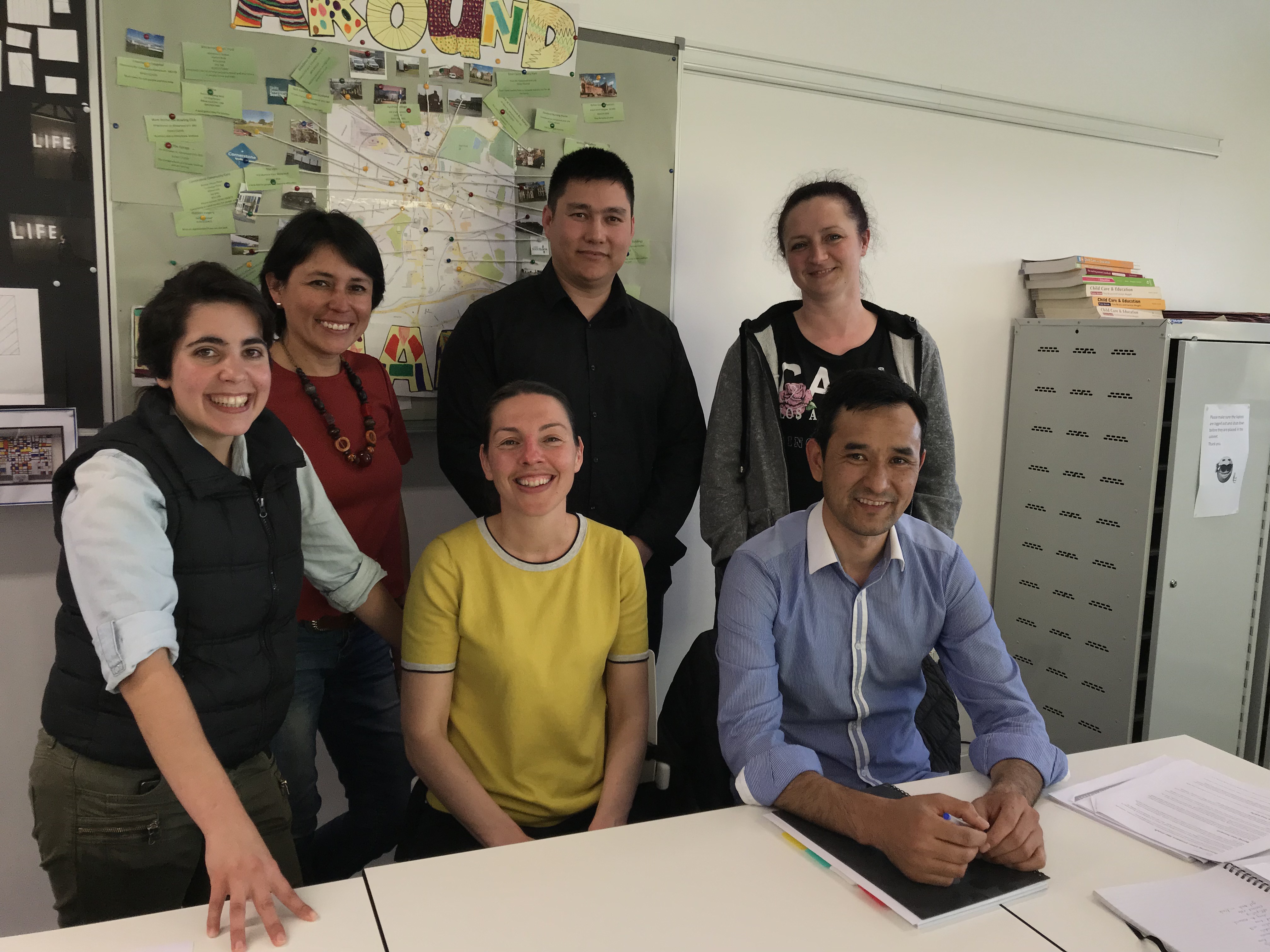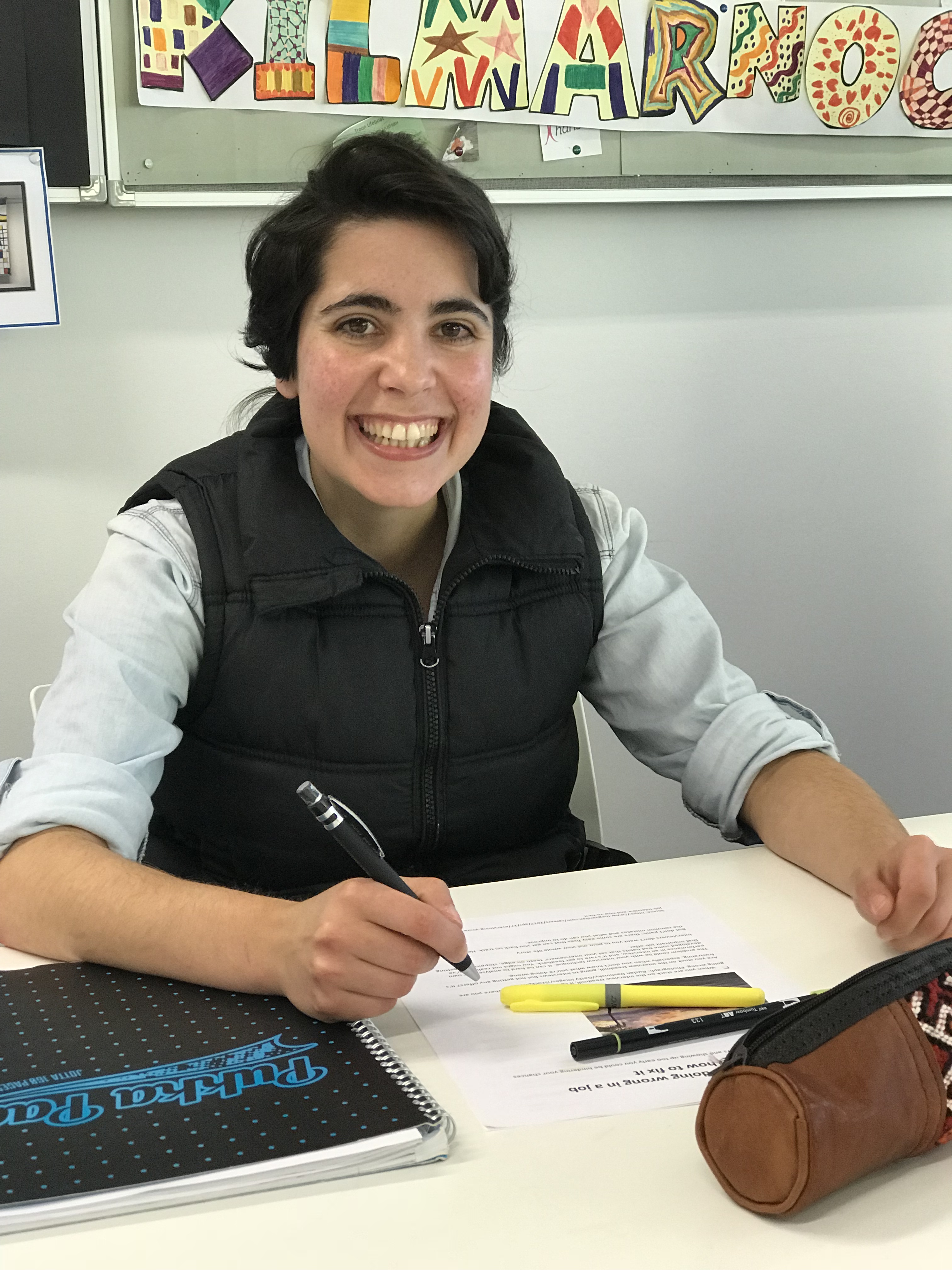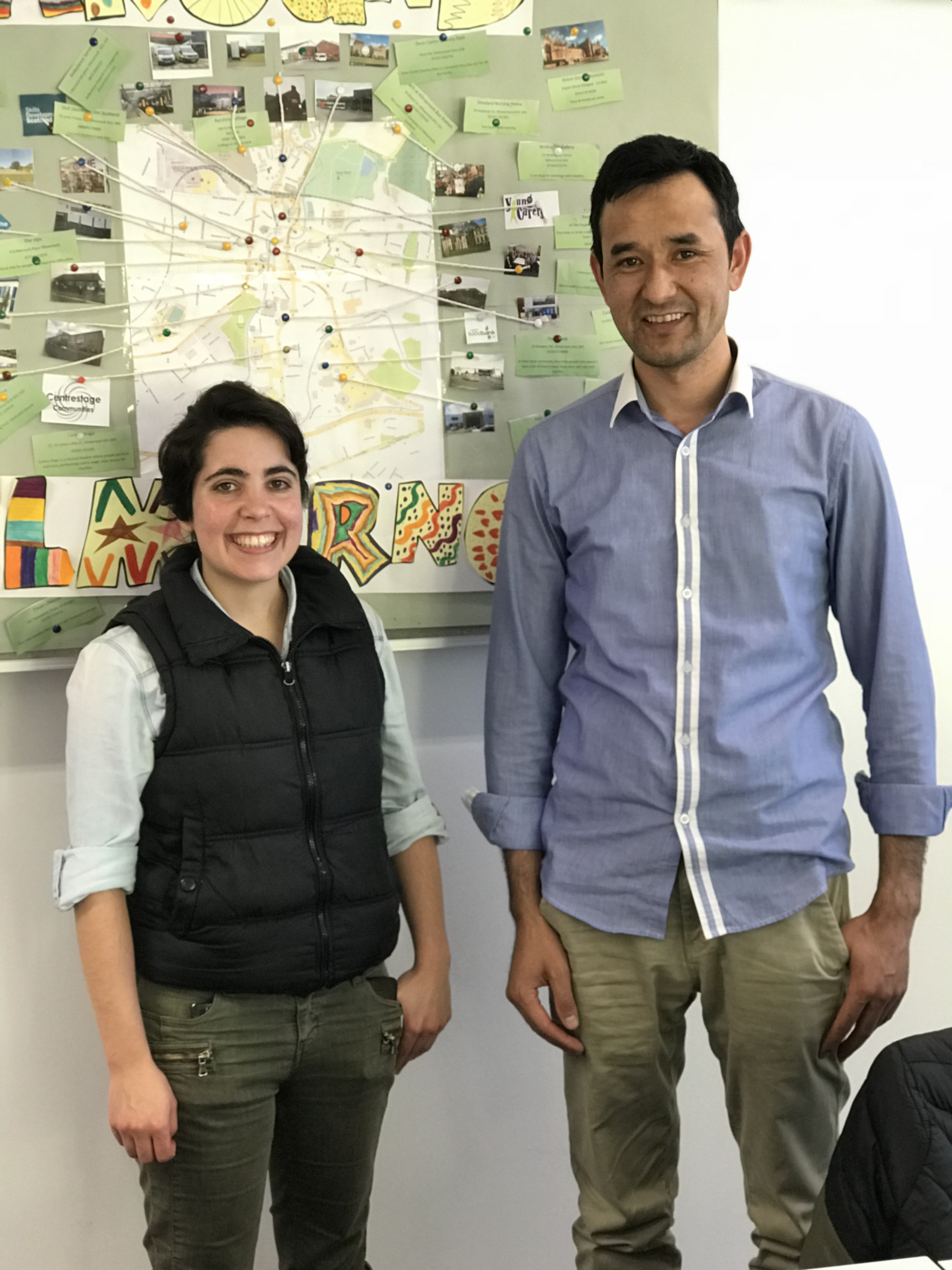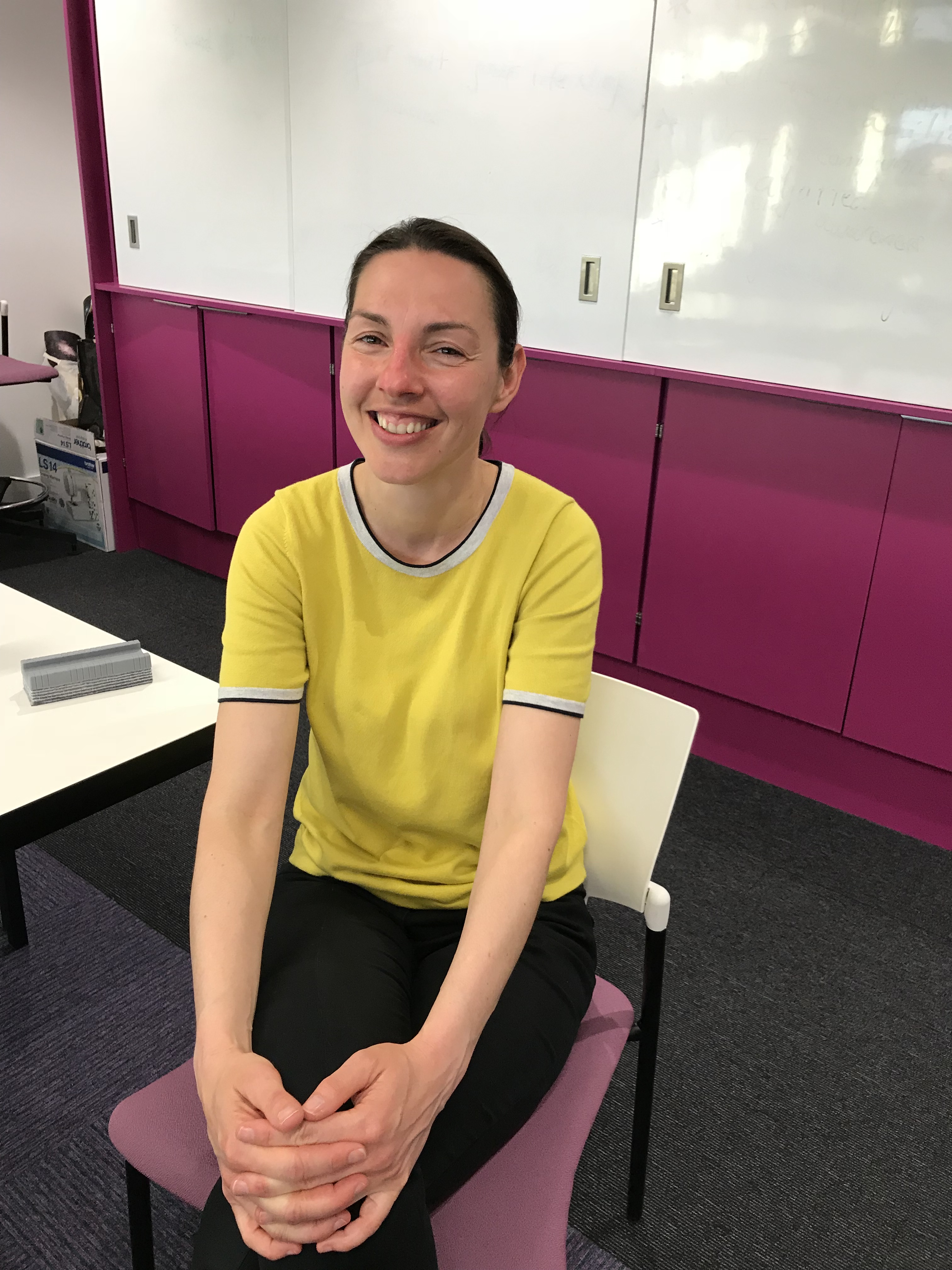An evening in the life of an ESOL student
Claire Todd, who is on a work experience placement with our Marketing team, has been spending time visiting students around the College.
Recently she met with Orsi Dunn, ESOL lecturer, and her students. ESOL is a course designed for people whose first language is not English, and who wish to develop their skills through writing, listening, reading and speaking.
Here is how she got on.
The ESOL course aims to help students understand information, to use their knowledge of language in practical and relevant work areas, and to gain confidence to begin new, challenging tasks.
As well as this, each student interviewed agreed that they have met a great group of people. Just look how cheery they are!

First I interviewed Pilar Santos, who had me keen to learn more about her from her answers to my very first question: ‘What made you decide to study this course?’
Pilar tells me that she experienced a horrific traffic accident before joining this course, and that she contacted Orsi to get enrolled: “I had a brain injury at level 3 and was in a coma for 5 days, in hospital for 5 weeks, and off work for a further 7 months.”
This is a very rare condition with only a 1% survival rate. Her doctors told her that she was a miracle.
Pilar now wants to improve her communication skills which is necessary for her current job with Food Standards Scotland. When she completes this course, she plans to sit an IELTS (International English Language Testing System), where a high score of at least 7 is essential for her to progress in her career.
When I ask what her biggest worry of the course is, she replies:
“I was worried that my brain would not work in the same ways it used to and that I would struggle to learn. Repetition helps me to learn and I am amazed at how easy I found this.”
What she enjoys most about this course is the chance to disconnect from her work with learning. She gets along great with the other students and says it’s nice that they can all share their experiences together.
She tells me that she struggles with the speaking element of the course: “Orsi tells me that I speak too fast and need to work on that. My writing skills for emails have definitely improved. My manager at work actually promoted me for my writing skills!”
The main thing she wants to continue to get better at is her communication skills to prepare her for the real life situations.
Finally, I ask what she would say to people who are thinking of applying for this course: “I’d tell them not to worry, as you are surrounded with similar students and this makes the thought of starting a new class much less daunting.”
She also comments that the course is an affordable price, that it is very manageable, and that the times are convenient as it is an evening class.

Next I speak with Rahmatullah Mohamma Juma.
Rahmatullah tells me that he chose this course to improve his English and that he actually studied a similar course in his home country of Afghanistan three years ago. He says he likes the idea of the class environment and decided to enrol on this specific course.
Rahmatullah has a wife and two kids and plans to improve his English skills as he feels this will help him to provide for his family.
When asked what he enjoys about the course he tells me: “I enjoy learning about other students’ experiences from their own countries and learning about different cultures.”
What he struggles with is writing, in particular punctuation when writing emails, however this course has certainly helped him to improve his skills.
I ask what his plans are for when this course is completed: “I plan to continue my studies at Ayrshire College in a different area. I currently work at Newton Security Doors Ltd and I am considering studying Mechanical Engineering to help me progress in my career.”
Lastly, he tells me that his wife is intending to study this same course : “My wife has completed level 4 and is completing level 5 at the moment before progressing to level 6. We have also encouraged our friends to enrol on this course to improve their English. I feel that the skills they would learn would be very beneficial to their families.”

The third student I interview is called Abduhlrahman Ali, who is Kurrdish from Syria. He has been studying English for a long time, since high school. He feels that he pays more attention to this class and that it will help him to find employment as well as further study in the future. His main goal for this course was to improve his writing skills.
When asked what he enjoys about this course he tells me: “I like the atmosphere in the ESOL class with other international students. I like that we are obliged to speak English to each other as well as learning about their different cultures. It’s a great way to meet new people.”
He has already bettered his written English but he will continue to improve until he is satisfied himself. He says: “My lecturer is great at helping me with my writing skills. I concentrated mainly on improving these compared to listening, reading and speaking. I receive a lot of homework and Orsi’s marking helps me to improve. All of the homework and assessments are very beneficial.”
The writing aspect is what he struggles with the most, particularly the punctuation. He tells me: “Learning English compared to Arabic is extremely different as Arabic generally uses very long sentences, whereas English does not always. This is difficult to adjust to. Orsi has helped me to improve my skills and I am feeling confident and optimistic for my upcoming assessments.”
Adduhlrahman has no specific plans for this summer and he has only been in Scotland for four months. However, he plans to continue his studies and find a job in something he is genuinely interested in and finds exciting.
When this course is completed, he plans to enrol on a Health and Safety course. He feels this course has been very beneficial and has supported him.
If he had to encourage people to apply to this course he would tell them: “It’s a great opportunity and it’s good to have a lecturer to mark your assessments and help you to improve your speaking, writing, reading and listening skills. It’s not an overly intense course which is ideal.”
Finally I interview Orsi Dunn, who seems to have a true passion for teaching.
She tells me that she likes a challenge and that it is really important to continue evening classes, although it requires a huge commitment from everyone. She feels it is necessary to give everyone a chance to participate.

What Orsi enjoys most about this course is the challenges it brings. She describes it as jigsaw.
“It is a very complex course and each student needs help with different things, whether that’s pronunciation, understanding concepts or grammar. It’s very interesting and rewarding. I love to hear the spectacular stories from my students. I learn from them, as they learn from me, and I hope that this is a mutually enriching experience. I hope that my students leave with a great sense of achievement.”
The most challenging aspect for her is the complexity of the course and the different aspects involved. Interpreting the different gaps and strengths within her students.
She loves to see the journeys travelled from her students, whether this is through volunteering, employment or further study. She feels that this is without a doubt the most rewarding aspect for her.
In three words she describes this course as rewarding, challenging and fun.